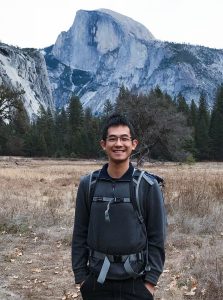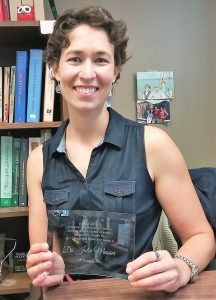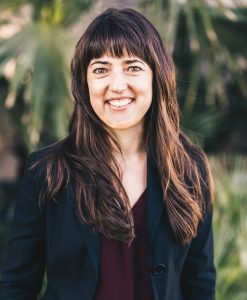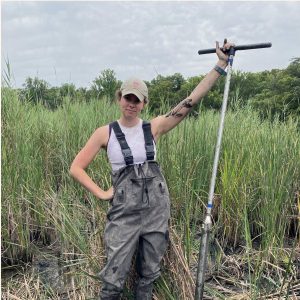2023 ESA Early Career Section Outstanding Paper Award Winners
Twitter handle: @Chuliang_Song

Biography: I am a theoretical and computational ecologist. My research aims to forecast the dynamics of ecological systems under incomplete information about the entire system. My research centers on establishing generic probabilistic links to scale up information about small amounts of an incompletely characterized system to rapidly assess the persistence of entire ecological systems. In this paper, we found that the persistence of small interaction subnetworks (i.e. the coexistence of all species in the subnetwork) isolated from their larger network is a reliable probabilistic indicator of the persistence of the whole ecological network (i.e. the coexistence of all species in the full network). Specifically, when the whole ecological network is persistent, more than half of all the subnetworks persist in isolation. In contrast, when the whole ecological network is not persistent, almost all the subnetworks fail to persist in isolation. By leveraging the large differences in coexistence in these two cases, we have developed a Bayesian statistical framework to effectively and rigorously update our beliefs about the persistence of the whole network from whether subnetworks are persistent in isolation.
Twitter handle: @dudney_joan
Biography: Joan Dudney is an Assistant Professor of Global Change Ecology at the Bren School and the Department of Environmental Studies at the University of California, Santa Barbara. Research in the Landscapes of Change (LOC) Lab is focused on understanding the causes and consequences of global change in terrestrial ecosystems. Joan’s current work seeks to disentangle the complex effects of climate change on forest communities, as well as the cascading impacts of changing disturbance regimes, including tree disease, bark beetles, and fire. Before joining UCSB, Joan was a David H. Smith Postdoctoral Fellowship at UC Davis and an independent postdoctoral fellowship based at the National Center for Ecological Analysis and Synthesis (NCEAS). Joan received her bachelor’s degree from Occidental College and volunteered for the Peace Corps in Paraguay, where she learned Spanish and the indigenous language, Guarani.
Twitter handle: @megan_vahsen
Biography: I am a quantitative ecologist who scales evolutionary processes across genotypes, populations, communities, and ecosystems in the context of global change. I employ an integrative framework: leveraging experiments, modeling, and ecological forecasting approaches to study eco-evolutionary theory and application using a predictive lens. I am currently a postdoctoral fellow in the Department of Wildland Resources at Utah State University. In my doctoral work at the University of Notre Dame, I investigated the role of rapid plant trait evolution in driving ecosystem dynamics in coastal marshes in the Chesapeake Bay and some of this work is presented in the highlighted article. Before my PhD, I received my MS in Ecology at Colorado State University and BS in Biology at the College of William and Mary.
2018 Ecology Letters and ESA Early Career Section Outstanding Paper Award

Research Interests:
Abiotic drivers of change: Temperature. Rainfall. Fire. Nutrient availability. Many abiotic factors shape plant communities. My research examines how a variety of abiotic factors interact to influence ecological communities. Research interests include understanding the ecological consequences of the increased intensity and frequency of climate events, alterations to fire regimes, and increased nitrogen deposition.
Mechanisms of ecological change: In addition to understanding how ecosystems change, I am also interested in understanding why ecological change occurs. I investigate the underlying mechanisms that make species prone to change. Currently I am focusing on how plant stress tolerance, in particular thermal stress tolerance, shapes plant community assemblages in the current era of climate change.
Ecotones and ecological transitions: Whether it is changes from prairie to forest through time in Wisconsin, shrub-grassland ecotones and transitions bewteen Chihuahuan desert and short grass steppe grasslands in New Mexico, or aquatic-terrestrial transitions along the Mid-Atlantic coast, I am interested in community dynamics along ecological transitions across space and through time.
Outstanding Paper: “Beyond arctic and alpine: the influence of winter climate on temperate ecosystems”
2017 Ecology Letters and ESA Early Career Section Outstanding Paper Award
Julie Messier

Bio:
I am an empirical plant ecologist interested in the causes and consequences of trait variation and integration across biological scales (from within individuals to among communities). My research aims to uncover general principles governing patterns of phenotypic diversity. I am broadly interested in questions at the intersection of the topics of plant physiology, scaling, functional straits, complexity, phenotypic integration and community ecology.
One of my pet interests is to tests implicit and explicit assumptions of the trait-based approach. My research has led me to conclude that considering individual variation, phenotypic complexity and the scale dependence of patterns and processes is key to moving trait-based ecology forward.
Outstanding paper: “How do traits vary across ecological scales? A case for trait-based ecology”




